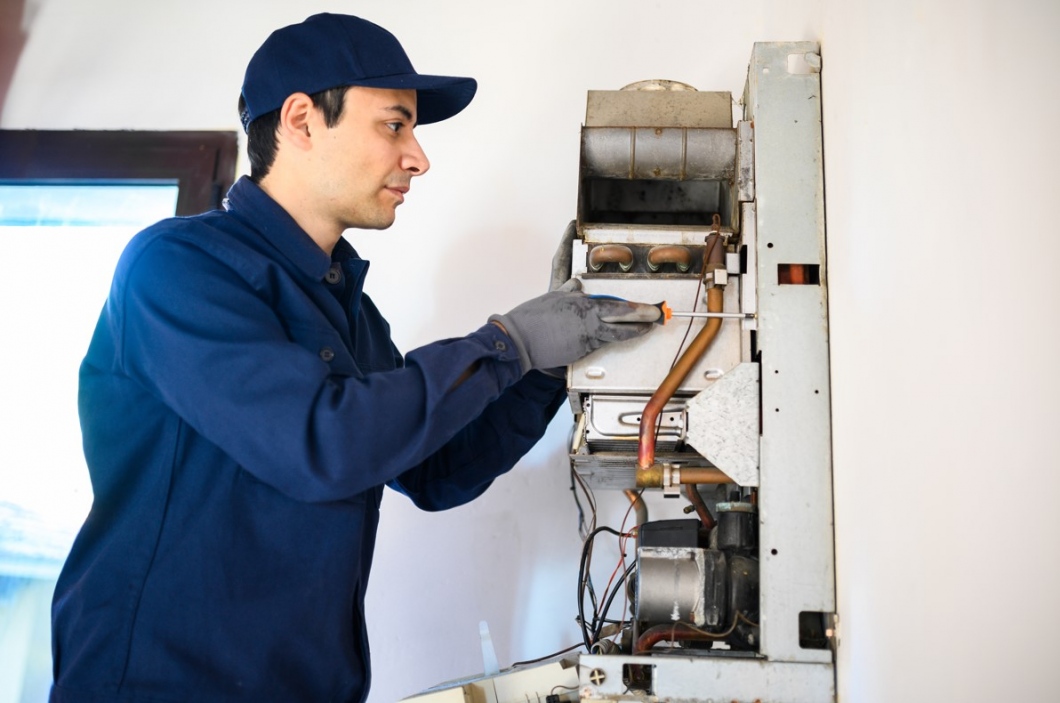Water heaters provide an incredible convenience for the modern home. Without a water heater, it would be very difficult to perform basic tasks such as taking showers, washing dishes, and washing clothes. An important part of owning a water heater is making sure to use it efficiently. While you can make upgrades to your water heater to improve its efficiency, the easiest way to use less energy is to properly dial in your water heater’s temperature. If you’re unsure how to do that, here’s a basic guide.
Know the Limits
First things first: when adjusting your water heater’s temperature, it is important that you don’t set it higher than 120 degrees Fahrenheit. Beyond that, you risk scalding due to the high temperature of the water. Most water heaters have a mark on the temperature control that makes it clear where to set the control so that you don’t go higher than 120 degrees. The only reason you would ever want to exceed this temperature is if you were using your water heater to do some type of cleaning where you needed the water hot enough to be able to sanitize the surfaces you are cleaning. That being said, this is typically only done by people who are in commercial cleaning so you probably wouldn’t even use it as a residential homeowner.
A Simple Setting
For the most part, changing the temperature on a water heater is quite simple. A majority of water heaters have a basic rotary knob that you can rotate to turn the temperature up or down. In general, you will need to turn the knob counter-clockwise to turn the temperature down and clockwise to turn the temperature up. Other types of water heaters may also have various settings that you can engage to help optimize the water temperature for your living situation. If you aren’t sure where the knobs are located, it may be helpful to find the brand and model of your heater by looking at the stickers on your heater. Once you identify that, you can search online specifically for the user manual. In some cases, you may even find a video that can walk you through it.
Don’t Forget Vacations
When you aren’t home for an extended period, most plumbers recommend that you turn your water heater down so that you aren’t wasting energy to keep water hot while you’re away. Many water heaters have a “vacation” setting that you can use so that you don’t have to overthink where to set your water heater’s temperature. Newer water heaters have the ability to connect to the internet so that you can adjust the temperature from wherever you are, even if you forget to do so before you leave home. Keep in mind, however, that you don’t completely turn off the heater while you are away. Especially if it is cold outside. Unless you are completely turning off your water as well, you may have problems with frozen pipes. Of course, depending on the temperatures in your area, you may be able to get away with turning off the heater and lightly running a faucet to prevent any issues.
Take Time To Assess
For most people, adjusting the temperature is the only face-to-face interaction they have with their water heater. Therefore, when you adjust the temperature, it’s a good idea to assess the overall condition of your water heater to make sure there aren’t any obvious problems. If you notice any leaks, rust, or unusual odors, make sure to schedule an appointment with a plumber as soon as possible. Plumbers can provide you diagnosis and repairs as needed and they can also adjust the temperature as part of their service. If you see any issues with the water heater, then consider reaching out to the plumber before adjusting the temperature. This can also be really helpful if you’ve upped your temperature on your water heater and haven’t noticed a difference. Sometimes there are settings on your actual appliances that would need to be adjusted and they can help with that. For example, many showers have additional water temperature control systems, and adjusting your water heater may not be enough for getting the hot water through your showerhead.
Lack of Hot Water
If you notice a lack of hot water coming from your water heater, you may be tempted to turn up the temperature to compensate. In some cases, increasing the temperature on your water heater is all that it takes to overcome a lack of hot water. If you continue to notice this problem, however, it’s likely that you have an issue with your water heater that needs to be addressed. Ignoring this problem for too long will only lead to more expensive repairs down the road, so it makes sense to take care of it quickly. Take a few minutes to review your water heater and if you aren’t familiar with water heaters or don’t feel comfortable diagnosing them yourself, consider finding the user manual online, reaching out to the manufacturer or even reaching out to a local plumbing company. The easiest way is probably going through a plumber but if you want to get it done yourself, some manufacturers have a customer service line that is available to help you with whatever you need. It is also the number that many plumbers use if they are having trouble with the unit as well.

